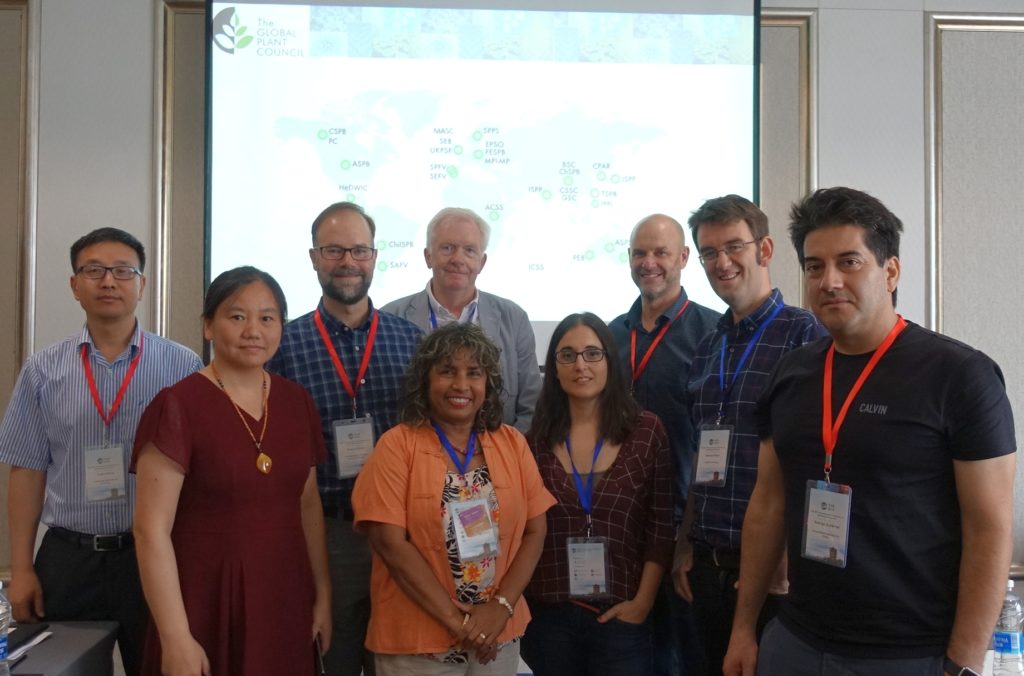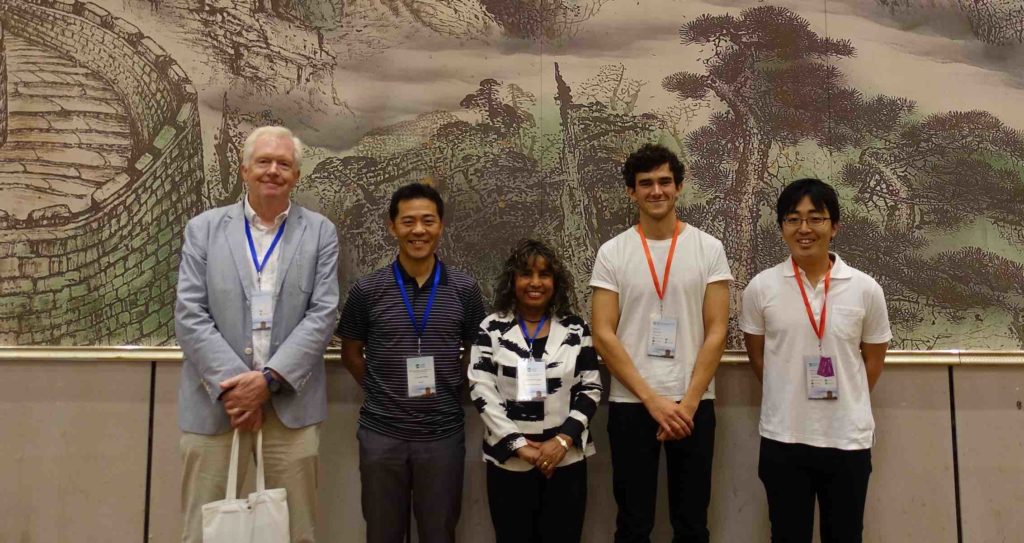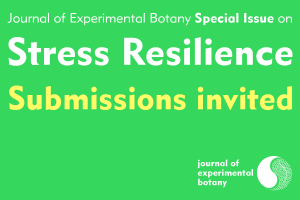
GPC annual meeting group picture. From left to right: Xuelu Wang (ICAR2019 organizer); Weihua Tang (China Society Plant Biology); Blake Meyers (Danforth Center); Deena Errampalli (GPC Board of Directors Treasurer, President, Plant Canada); Bill Davies (GPC Past-President, UK Plant Sciences Federation); Isabel Mendoza (GPC communications officer); Barry Pogson (GPC chair, Australian Society of Plant Scientists); Geraint Parry (SEB, MASC) and Rodrigo Gutierrez (Chilean Society of Plant Biology)
One of the Global Plant Council’s (GPC) principal objectives is to reach the global plant science audience. And to pursue this aim, the GPC annual meeting is held every year in parallel to a big plant science conference.
In accordance with this practice, the GPC took its annual meeting this June to the 30th International Conference on Arabidopsis Research (ICAR2019). This international conference was held on June 16-21, 2019 in Wuhan, China and attended by over 1,000 plant scientists from around the world.
GPC also took an active part in the conference itself hosting two of the offered workshops. Understandably, many members of GPC board were there, either as invited speakers (Barry Pogson, GPC Chair); or as part of the workshops organizing team (Bill Davies, GPC past-president; Deena Errampalli, GPC treasurer; Yosuke Saijo (Board Member) and Isabel Mendoza (GPC communications officer).
Workshops
Role of the microbiome in sustainable agriculture
The first workshop “Role of the microbiome in sustainable agriculture” was held on the 18th June. Led by Deena Errampalli and Yosuke Saijo and with the participation from Bill Davies, Ruben Garrido-Oter and Kei Hiruma. Over 40 people attended the workshop, which provided participants with up-to-date knowledge on the role of the microbiome in Arabidopsis and its application on sustainable agriculture. Practical cases such as the Canadian ginseng were also introduced.

Communicating your science to the broader community
On the 19th June, the GPC team held the second of these workshops “Communicating your science to the broader community” addressed especially for early career researchers. Over 45 people attended. This meeting was led by Isabel Mendoza with the cooperation of Mary Williams (@PlantTeaching) and Geraint Parry (@GARNetweets). The meeting provided participants with clues on how to increase the impact of their own research, helping them understand the rules of science communication and tricks on how to profit from the more commonly used online channels.
This was the first dissemination activity of the recently established Early Career Researcher International (ECRi) network, an initiative that aims to help the ECRs in developing their careers. A dedicated post on the issues discussed at the workshop is on development. Stay tuned!





